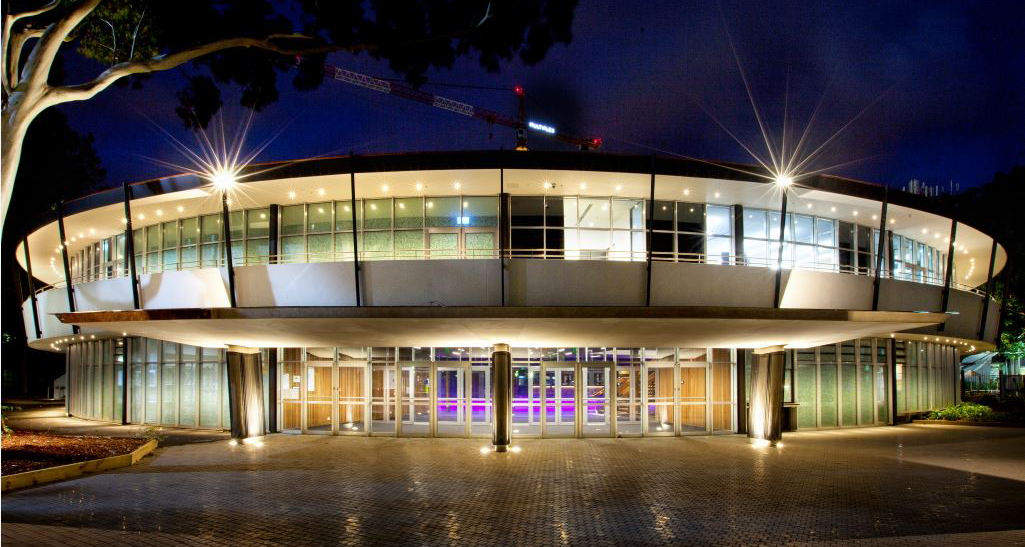
The building has been recognised for its clever sustainable initiatives, incorporating natural materials with efficient energy usage systems.
This month the Australian Institute of Architects have named UNSW Roundhouse as the winner of the ‘Sustainability’ category in the 2019 NSW Architecture Awards.
UNSW Roundhouse took home the award for a recent upgrade, managed by UNSW Estate Management, which has significantly improved the design, function and efficiency of this well-loved building.
“The Roundhouse upgrade is a true example of Estate Management’s contribution to a campus which enables ground-breaking work and looks great but is also sustainable,” said Sancha Cromie, Executive Director (Acting) of Estate Management. “By ensuring that sustainability is fundamental to how we work, we’re committing to a campus that will thrive into the future.
“Plenty of collaboration and innovative thinking went into this project, so it’s fantastic for the team to get this recognition.”
The renovations, designed by architectural firm Tonkin Zulaikha Greer, honour the innovative original design by NSW government architect Joseph W. van der Steen by seamlessly blending function and aesthetic with major sustainability and environmental considerations.
The Roundhouse heating and energy services have been upgraded to make the building more efficient. Innovative planning means the Roundhouse now shares a thermal plant with the neighbouring Science and Engineering Building (SEB). While SEB draws on the plant mostly during the day, the Roundhouse peaks at night-time, so both buildings can harmoniously share energy resources.
Extensive use of NSW spotted gum has been used, which is a sustainably sourced, robust material that reflects the original finishes of the building.
Timber throughout the project is finished using natural oil which reduces internal pollutants and is a sustainable product derived from the Tung tree.
Marmoleum floor coverings were selected over more common vinyl flooring for the brand’s environmental credentials. Marmoleum is the first CO2 neutral resilient floor covering in the world.
The façade, original dome skylights and central oculus have been re-glazed to make the most of natural sunlight and reduce heat gain and loss.
The sustainable elements of the building recognised by the Australian Institute of Architects are just one of the environmental initiatives that feature in the surrounding area of the Roundhouse.
Beside the Roundhouse, located underground, is a 535m3 rainwater retention tank which sits below the public domain landscaping.
Treated rainwater and runoff is collected and flows into the tank, which then filters through the soil and recharges the Botany Aquifer below. Bore water is extracted from the aquifer and provides a reliable water supply for laboratories, landscape irrigation, toilet flushing, cooling towers and the YMCA pool.
A 940m2 garden area has been positioned at the back of the building to create a green social space adjacent to an overlooking 50-year-old Plane tree. New external roundtables and benches which surround the venue were also crafted from recycled timbers.
The Roundhouse upgrade is part of a University-wide commitment to Sustainability.
William Syddall, Head of Environmental Sustainability at UNSW said:
“The renovation of the Roundhouse building is an example of our commitment to embed leading environmental sustainability principles into the planning and operation of our campuses,” said Mr Syddall, Head of Environmental Sustainability. “By retaining the original structure and façade the team have reduced pressure on virgin resources and preserved the iconic character of the Roundhouse, while substantially enhancing its energy and water efficiency”.
This year UNSW launched an ambitious Environmental Sustainability Plan 2019-21 (ESP). The plan is designed to address UNSW’s key environmental issues and defines commitments, targets and activities across 10 focus areas including climate action, waste and recycling, and energy and water efficiency.
UNSW will switch to 100% renewable electricity and its buildings will net zero emission in operation by 2020 as part of the new three-year plan.
- Log in to post comments
